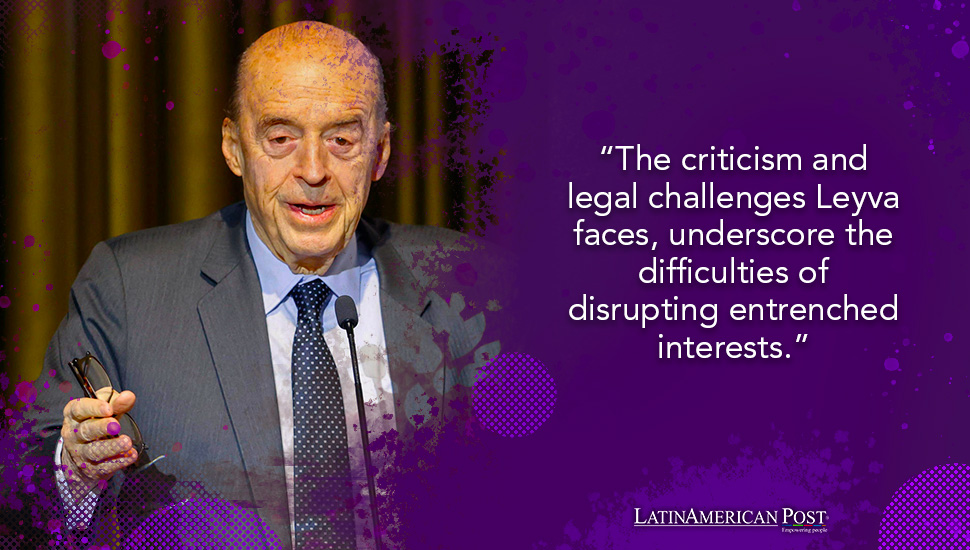Colombia’s Foreign Minister Stance Against Monopolies Upholds Transparency and Fairness

Colombia’s Foreign Minister Alvaro Leyva’s suspension over tender irregularities sparks debate, yet his firm stance against monopolistic practices is a commendable step towards combating corruption and ensuring fair competition in public procurement.
Colombia’s Foreign Minister Takes Stance Against Monopolistic Practices
The recent suspension of Colombia’s Foreign Minister Alvaro Leyva by the country’s inspector general has stirred significant debate. Leyva, a prominent figure in the current administration, faces allegations regarding irregularities in the tender process for producing passports. However, examining the context and Leyva’s actions reveals a potentially transformative approach against long-standing monopolistic practices in public procurement.
Leyva’s suspension stems from his decision last year to declare a bidding process void when only one company, Thomas Greg & Sons – already the producer of Colombian passports – submitted an offer. This move, though controversial, highlights Leyva’s commitment to combating monopolies and ensuring fair competition. Despite some officials’ recommendations, his refusal to conciliate with Thomas Greg Ministry underlines his firm stance on maintaining integrity in public contracts.
The minister’s actions should be viewed within the broader context of Colombia’s struggle against entrenched monopolistic practices. Leyva’s decision to declare the tender void was not arbitrary but based on a thorough understanding of the need for a transparent and competitive bidding process. His commitment to fairness is evident in his determination to investigate the entire process, ensuring that no single firm unjustly dominates the market.
Furthermore, Leyva’s approach aligns with President Gustavo Petro’s broader policy against monopolies in Colombia. By challenging the status quo, Leyva seeks to promote a more equitable economic environment, which is crucial for the country’s long-term growth and sustainability. This commitment to fair competition is a stand against corruption and a move towards a more democratic and inclusive economic system.
The criticism and legal challenges Leyva faces, including the lawsuit filed by Thomas Greg & Sons seeking compensation, underscore the difficulties of disrupting entrenched interests. However, these challenges also highlight the need for reforms in how public contracts are awarded and managed. Leyva’s actions, though resulting in his suspension, have opened a necessary dialogue on reforming procurement processes to prevent the perpetuation of monopolies.
Leyva’s legal rationale for not conciliating with Thomas Greg & Sons is grounded in constitutional principles and the public interest. Despite dissent from some within his ministry, his refusal to compromise on these grounds demonstrates his commitment to upholding the law and protecting the public interest. This stance, while controversial, is a necessary step in addressing the deeply ingrained issue of monopolies in public contracts.
In defending his actions, Leyva has remained steadfast, citing the need to allow more than one firm to compete for government contracts. This approach is not just a matter of legal compliance but also an ethical stance against the monopolization of public resources. By challenging the norm of single-bidder tenders, Leyva advocates for a more competitive and transparent system that benefits the entire nation, not just a few privileged companies.
Also read: Maria Corina Machado Spearheads Venezuelan Opposition Alliance Against Maduro
Leyva’s perspective is further bolstered by historical precedents where monopolistic practices have been penalized, aligning his actions with established legal principles. His insistence on a competitive bidding process is not an isolated stance but part of a broader effort to ensure that public procurement serves the public good rather than private interests.





